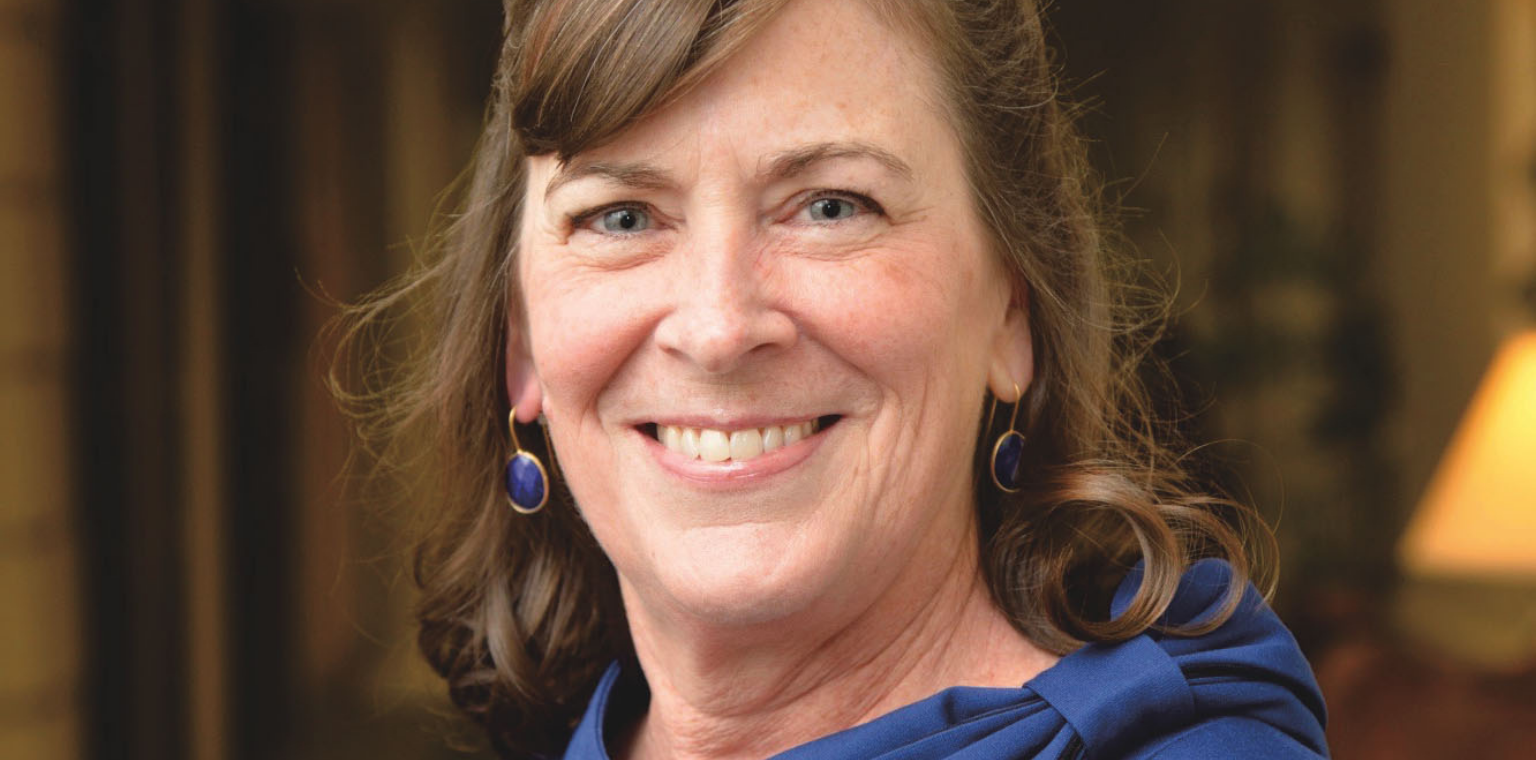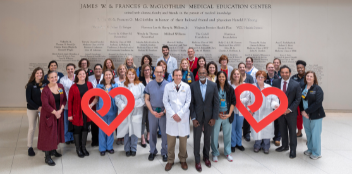Alumnus spotlight: Carolyn Burns, M.D., FACC
Meet cardiology fellow alumnus, Carolyn Burns, M.D.

In Virginia’s capital, state legislators are frequently faced with issues pertaining to medicine. When they are, there isn’t always a doctor “in the house” (or the Senate) to weigh in, nor is it guaranteed that public representatives know how to phone a friend from the medical community. For this reason, “It’s critical for us to have a relationship with the legislators,” said Carolyn Burns, M.D., FACC, “so that we can help to inform and serve as a voice for our patients’ interests.”
Burns is one of many physicians who willingly go beyond their career goals to put in the extra time and effort it takes to remain socially active — including the more than 2,100 members of the Richmond Academy of Medicine (RAM), for which she is president. For instance, amid the COVID-19 pandemic and under her leadership, RAM created a resource center, including webinars, programs and information to assist overwhelmed doctors. Another RAM program, Loving Lunches RVA, delivered 16,500 meals to 27 medical facilities while contributing more than $100,000 to the local food service industry.
In addition to her role as a noninvasive cardiologist with Virginia Cardiovascular Specialists, she and a panel of around 60 committee members also serve as on-call doctors for state representatives, actively patrolling legislation for issues they feel physicians should weigh in on.
“As a group, we go down and try to help our legislators understand things related to medicine,” Burns said. “My state senator knows who I am because I’ve been in front of her. If she has a question, she’s going to reach out and ask, ‘Hey, what do you think about this? I don’t know anything about it.’” It’s these types of open conversations that RAM was designed around more than 200 years ago. VCU faculty and physicians have always been a big part of the Richmond-based organization, she adds.
For her, the idea of public service was not innate, Burns admitted, but “I realized just how important it is for us to be able to advocate for things that would make the practice of medicine better — not just for us, but for our patients.” Her leadership role with RAM is also a natural extension of her attitude about shared responsibilities, starting with physicians and patients. As a cardiologist with advanced training in lipidology who specializes in the management of elevated cholesterol and reduction of cardiovascular risk, “We should always start by talking about healthy lifestyle.”
“I realized just how important it is for us to be able to advocate for things that would make the practice of medicine better — not just for us, but for our patients.”
After earning her undergraduate degree at Youngstown State University and attending medical school and residency at the University of Pittsburgh School of Medicine, Burns completed her fellowship in cardiology at VCU. Along the way, she said she came to realize, “I think there is a need for people to take some personal responsibility in their health.” Similarly, she feels there is a need for physicians to take responsibility for issues of public health and safety. “In Richmond, the doctors were the ones who said, ‘Kids need to go outside and get fresh air,’ and also that we all need access to good, safe drinking water,” Burns pointed out.
In this same way, she believes that physicians have a moral responsibility to address issues like gun safety. She contributed an op-ed column on the subject to Richmond Times-Dispatch.
“We know and see firsthand what gun violence does to our patients, families and communities,” she wrote. And when the National Rifle Association suggested that doctors stay in their lanes, she responded by pointing to seat belts, tobacco and alcohol — all of which were seen by physicians as issues of public health and safety.
Ultimately, whether it is raising awareness or helping to advance legislation, it’s rarely about finding an immediate solution, Burns pointed out. Instead, “You need debate and consideration to get it right,” she said. “It’s a message for all of us to make change happen.”
Back to Spring-2021


